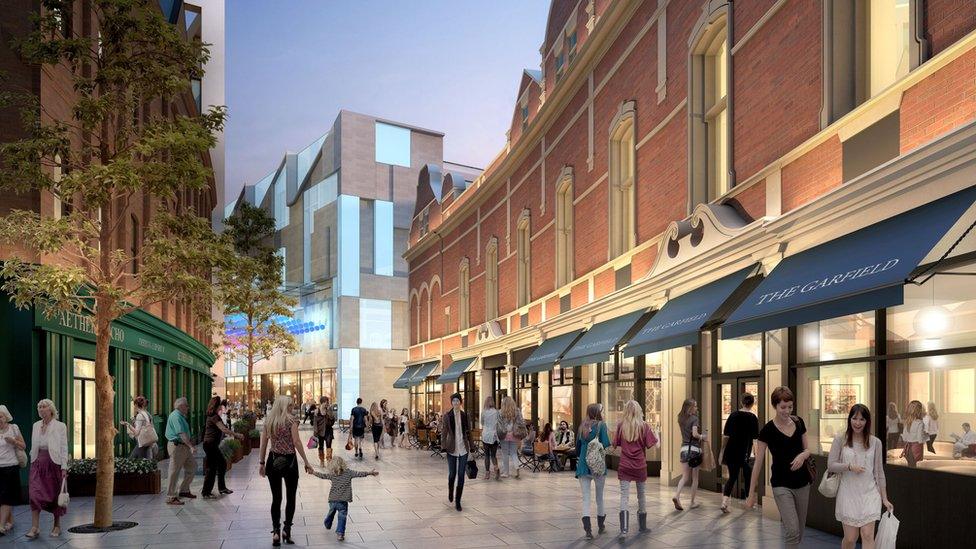Tribeca Belfast: Council backs £500m plan for Cathedral Quarter
- Published
- comments
Council backs Belfast Cathedral Quarter plans
Outline planning approval has been granted for a revised version of the 'Tribeca' development in Belfast.
The £500m project, by Castlebrooke Investments, proposes to regenerate the city's Cathedral Quarter.
A vote on a revised masterplan, which will retain more of the area's historic buildings, received backing by Belfast City Council's planning committee.
The council received more than 450 letters of objection to the development and five letters of support.
Castlebrooke Investments has properties on 12 acres between Royal Avenue and the Cathedral Quarter, a project formerly known as Royal Exchange.
The developer, who put the new plan to a voluntary 10-week public consultation, said it would "incorporate a greater degree of retention of non-listed building fabric which further retains the best elements of the historic streetscape".
Planning permission has already been granted for the first phase, with Tuesday night's approval covering the remaining two thirds of the site.
The project has been opposed by campaigners from the group SaveCQ (Save Cathedral Quarter).
It had urged councillors to reject the new plans and described it as "yet another planning application that will only inflate land prices and push more people out of the city, with an ill-conceived scheme that is unbuildable in its current form".
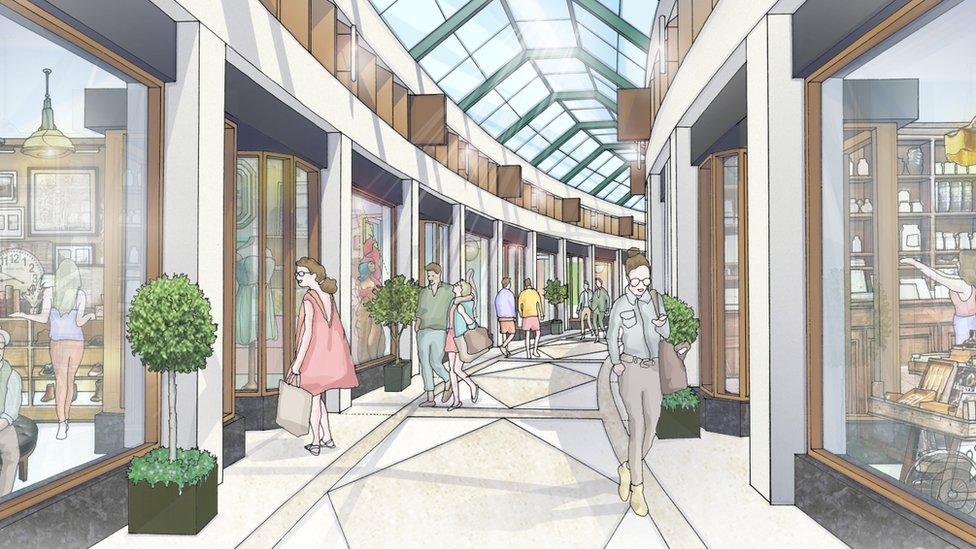
The developer says it wants to bring North Street Arcade back into use
Jonathan Mitchell, director of Castlebrooke Investments, said: "We have been working on Tribeca Belfast for many years and it is fantastic to see such a significant step forward taking place today.
"We listened to the concerns of interested parties through our voluntary public consultation process and this effort has been recognised by Belfast City Council.
"Our attention now turns to moving forwards with our detailed plans and beginning work on site as soon as possible."
Allow X content?
This article contains content provided by X. We ask for your permission before anything is loaded, as they may be using cookies and other technologies. You may want to read X’s cookie policy, external and privacy policy, external before accepting. To view this content choose ‘accept and continue’.

Agustina Martire, who chairs Save CQ, is a lecturer in architecture at Queen's University, Belfast.
"Our biggest concerns are the reduction of public space at Writers Square; the amount of demolition - which is over 75% of the existing fabric - and the type of housing that is provided by the project," she said.
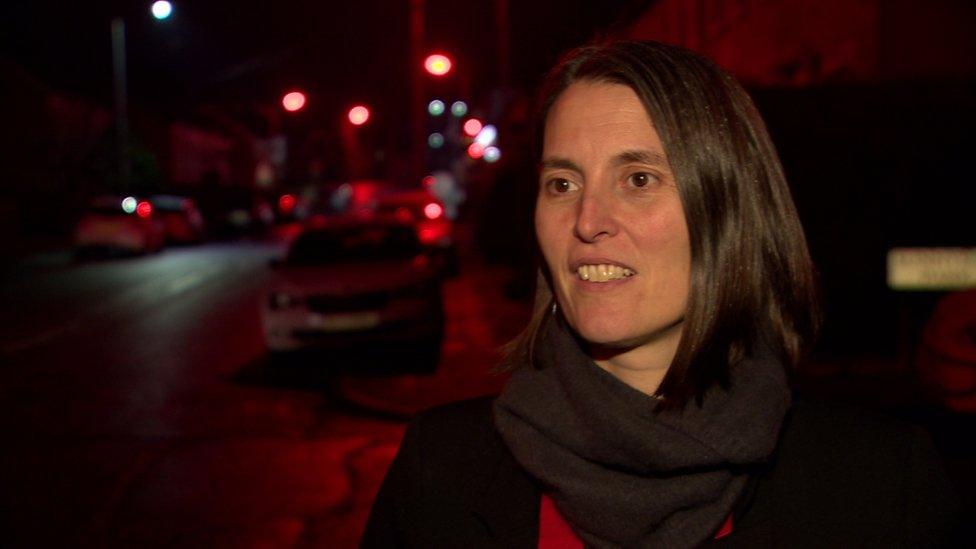
Agustina Martire said the plan would not create the family accommodation needed in the city
She said the one and two-bedroom residential accommodation proposed in the plan was "not really suitable for families" and was not type of "lifelong homes that we would like to see in that area".
Ms Martire added that the revised proposal still did not meet the 20% quota for social housing "stipulated in the local development plan".
The chairwoman also argued that Writers Square was an important public space in Belfast city centre and claimed the Tribeca' development would reduce that public space to "at least half of what it is now".
She said SaveCQ campaigners accept that the Cathedral Quarter "desperately needs development" but want the regeneration to be of a good standard and accessible to the people of Belfast.
Ms Martire said the revised masterplan was an improvement on the 2017 proposal but still did not comply with a lot of the principles that SaveCQ has been advocating for.
Alliance Party councillor Kate Nicholl told BBC News NI that "a lot of the issues that were raised by campaigners were completely valid" and she would like there to be more social housing.
But she welcomed plans by developers for more public space, including "a corridor that will connect the city better".
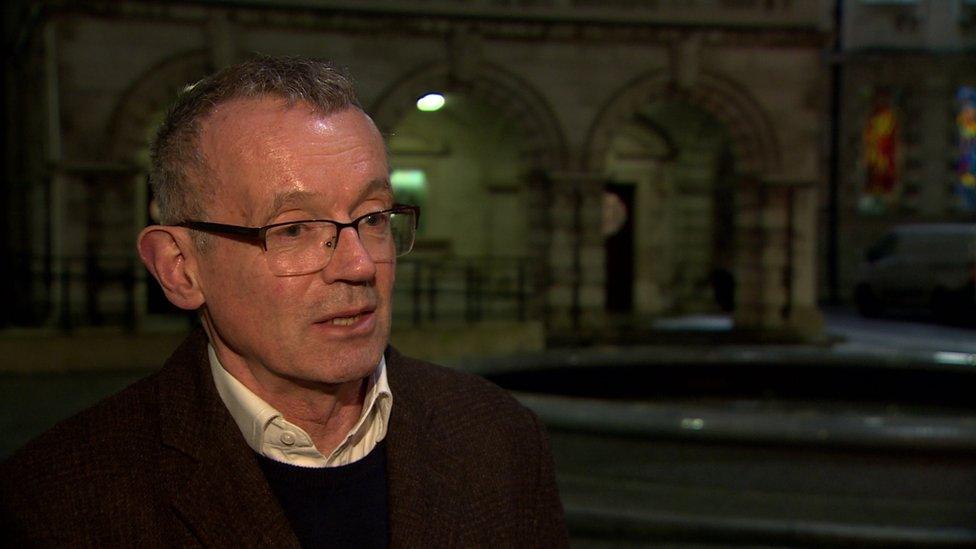
Conservational architect Dawson Stelfox says it is a positive step for Belfast
Speaking on Good Morning Ulster, architect Dawson Stelfox, one of the project's designers, argued the area "needs a big, bold effort to get such a derelict area of the city back into life again".
"There's been a huge amount of public consultation and the scheme has changed as a result of that," he said.
"All the listed buildings in the scheme will be properly restored and put back into life again. In addition to that, quite a lot of the historic facades are also being kept.
"In these schemes, no one gets everything they want but it's a balanced judgement as to what is economically viable, what's realistic, good for the city and how we can get regeneration happening."
The outline plans will now have to go to the Department of Infrastructure before they can be fully approved.
- Published8 January 2019
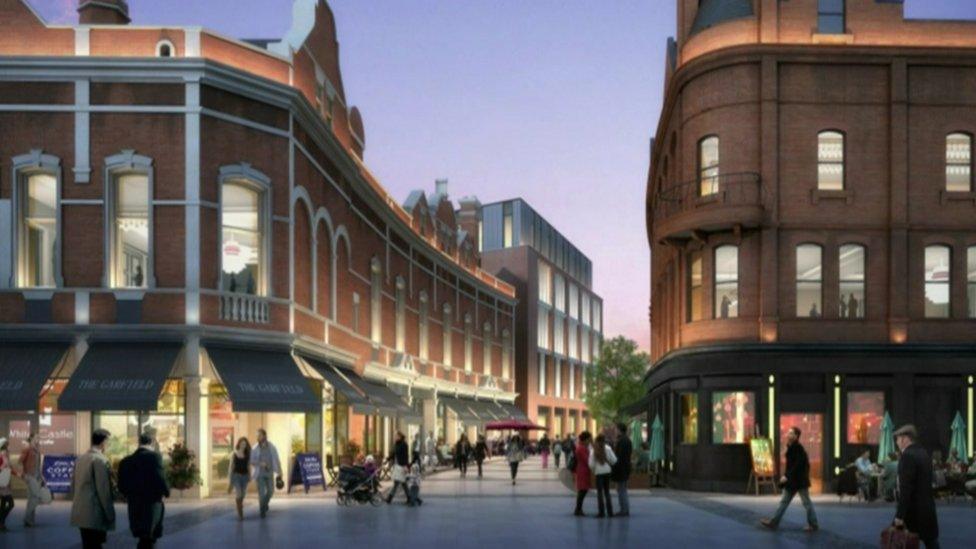
- Published7 February 2017
